Gërmia National Park is always crowded on weekends. Half of Pristina comes here with children and numerous relatives to relax in nature. Sometimes we Ukrainian journalists, who live and work under the Journalists-in-Residence Program, also come here. During walks, we are often greeted by strangers.
A young blue-eyed man, a seller of sweets, also greets us. However, after a sympathetic greeting, he suddenly starts saying offensive things about Ukraine and its president. In fact, it repeats the narratives broadcast by Kremlin propagandists through a network of numerous “fake media,” including those in the Balkans. This trader communicates with several hundred visitors to the park in a day. Unfortunately, some of them believe his unreliable tales and sometimes deliberately falsified information.
This trend was confirmed by the Balkan Investigative Reporting Network (BIRN) research with the support of the Delegation of the European Union. The results will be released in June, but preliminary data point to a lack of critical thinking in some parts of society and the influence of fake news on public opinion.
In particular, about 1% of the surveyed Kosovars trust the propaganda media Russia Today and Sputnik. It could seem that the percentage is small. But poisonous emissions get into people’s heads and make people believe in the “crucified boy,” the alleged “global conspiracy against Russia,” and other fabricated nonsense. The next point is even more intriguing. 12.6% of respondents said they trust the Information Agency of Kosovo, and 5.6% – London Today. But the trick is that such media companies do not exist.
These and other data were released during a recent conference dedicated to International Fact-Checking Day, celebrated on April 2. Journalists and representatives of international institutions took part in the event. They discussed the role of mass media in countering disinformation, which has long been a component of hybrid warfare.
“We are witnessing that even in democratic and developed countries, the truth often faces the victory of lies, conspiracies, disinformation, which aim to divide societies, confuse and intimidate people into making unwise decisions,” said Jeta Jara, a co-founder and the director of BIRN.
EU Ambassador to Kosovo Tomáš Szunyog called the fight against disinformation a collective responsibility.
“We must explore new strategies and partnerships to promote professional journalism and media literacy, as well as ensure access to verified information, transparency, and accountability,” he said in his opening remarks.
The conference participants agreed that the issue of foreign manipulation of information became even more relevant after February 24, 2022. The Italian ambassador to Kosovo, Antonello De Riu, reminded that strategies for manipulating public opinion and undermining the stability of states and their democratic institutions are often hidden behind false or fake news.
For example, almost ten percent of Kosovars surveyed believe Russia has experienced economic growth since it launched a large-scale invasion of Ukraine. In this way, the Kremlin’s narrative about the ineffectiveness of sanctions against the aggressor country is embedded in people’s minds. They also make them believe in the myth of Russian greatness. There are more than enough such examples. Last year alone, 315 false or misleading messages entered the information space of the Republic of Kosovo.
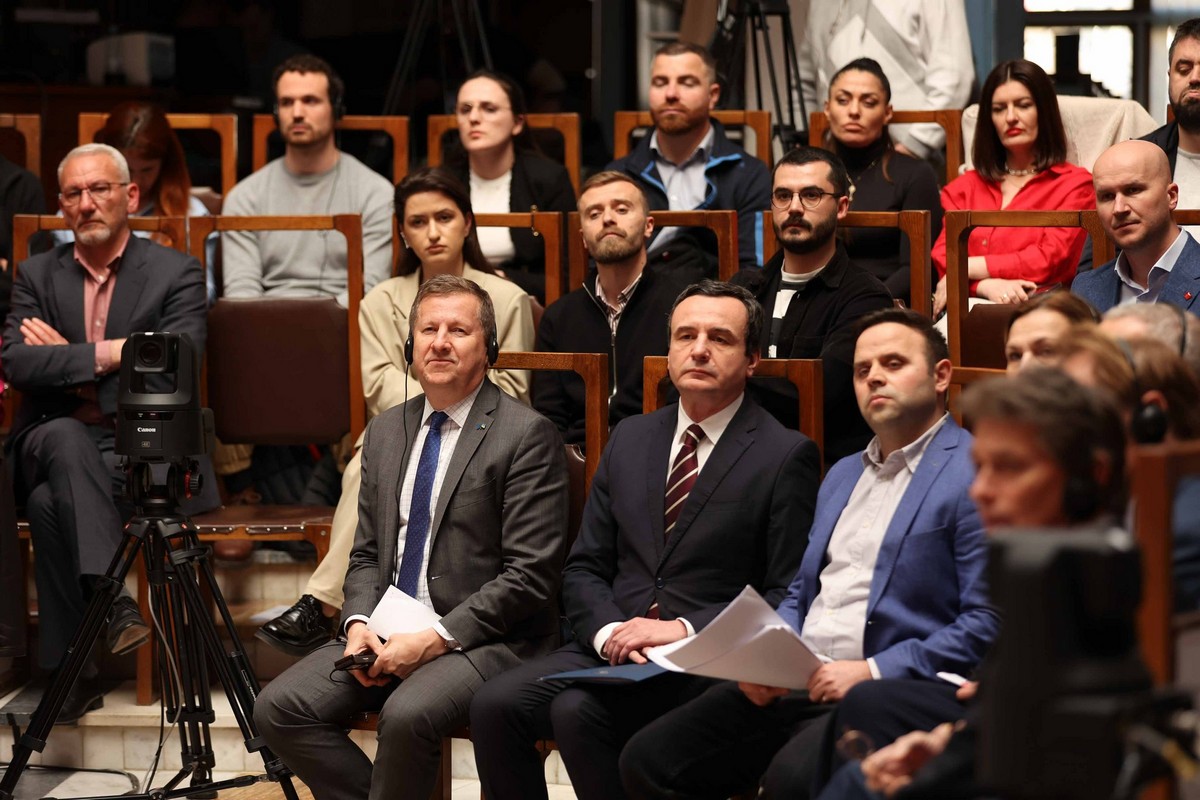 Kosovo Prime Minister Albin Kurti believes Russia is a champion in spreading propaganda, and the entire civilized world must oppose it. He noted that the freedom of the Kosovo mass media is an example for the countries of the region and beyond. As a positive example of international cooperation, he named the professional protection program for Ukrainian and Afghan journalists called Journalists-in-Residence Program, which is implemented with the support of the Kosovo Government, the Association of Kosovo Newspapermen, the European Center for Press Freedom and Media Freedom, as well as the German Embassy.
Kosovo Prime Minister Albin Kurti believes Russia is a champion in spreading propaganda, and the entire civilized world must oppose it. He noted that the freedom of the Kosovo mass media is an example for the countries of the region and beyond. As a positive example of international cooperation, he named the professional protection program for Ukrainian and Afghan journalists called Journalists-in-Residence Program, which is implemented with the support of the Kosovo Government, the Association of Kosovo Newspapermen, the European Center for Press Freedom and Media Freedom, as well as the German Embassy.
This support helps the media do their job as well as possible, the lion’s share of which is fact-checking, refuting false messages, and fighting Russian propaganda.
According to Head of the Kosovo Journalists Association, Xhemajl Rexha, the importance of the program is difficult to overestimate. In February, he visited Ukraine for the first time, where he prepared for the Balkan media a series of reports from Irpin, Kyiv, Bucha, Hostomel, and other Ukrainian cities that suffered from the Russian invaders. He also met with President of the National Union of Journalists of Ukraine (NUJU), Sergiy Tomilenko, and NUJU First Secretary Lina Kushch. He was impressed by how the Ukrainian media work in extraordinary conditions. Each of them fulfills his mission in his place, to tell the truth about the war.
What concerns the participants in the program: during their stay in Pristina, they actively represent Ukraine not only on the pages of their media but also at the international level. They were invited to the Kosovo Parliament and the embassies of the United States of America, Great Britain, Germany, and France in Kosovo. Recently, at the invitation of the Dutch embassy in Kosovo, they, together with Afghan journalists, took part in a joint Iftar dinner, which takes place during the holy month of Ramadan for Muslims.
These visits were not only an opportunity to thank for the support of Ukraine but also an opportunity to share thoughts about the future of our country after the victory. All employees of diplomatic missions, without exception, see our country as a full member of the European Union. By the way, as well as Kosovo, because both our countries submitted applications for joining the EU almost simultaneously.
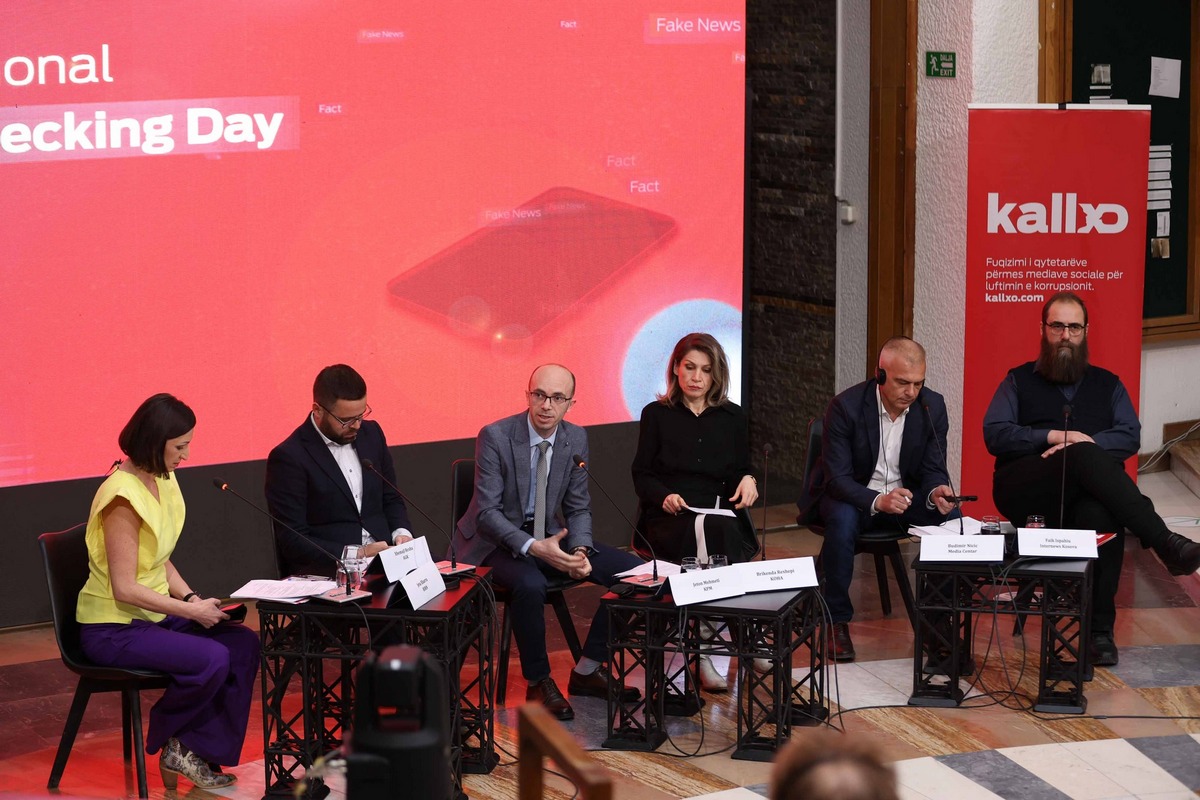
Liudmyla Makei, Pristina
Photo from European Union in Kosovo Facebook page

 THE NATIONAL UNION OF
JOURNALISTS OF UKRAINE
THE NATIONAL UNION OF
JOURNALISTS OF UKRAINE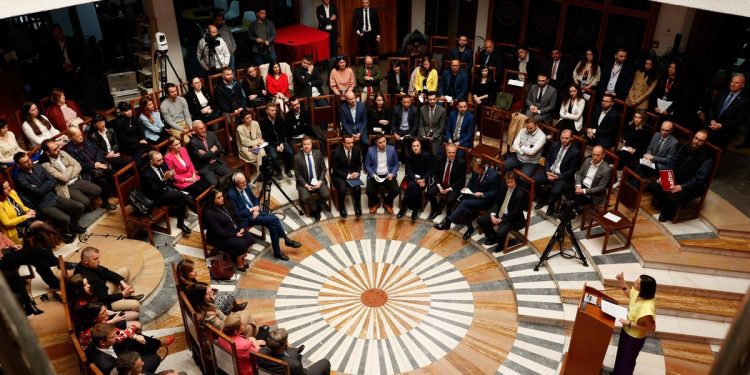
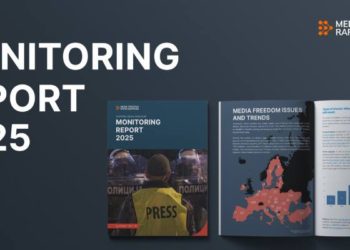
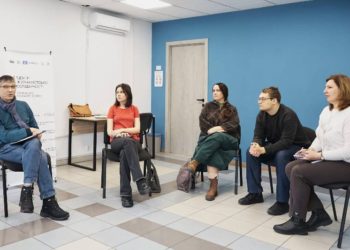














Discussion about this post